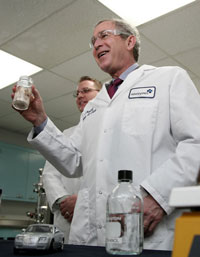 President Bush paid a visit Thursday to Novozymes North America Inc., a company which is researching enzymes to be used to produce cellulosic ethanol.
President Bush paid a visit Thursday to Novozymes North America Inc., a company which is researching enzymes to be used to produce cellulosic ethanol.
The president toured the company’s Franklinton, North Carolina laboratories and talked with researchers about the technology needed to make wood chips and other biomass into fuel on a commerically viable basis. At one point, Bush held up a beaker of ethanol, sniffed it and joked, “I quit drinking in 1986.”
Outside, the president posed with officials from Novozymes in front of the Team Ethanol IndyCar show car. AP reports that he “leaned down and fiddled with the wheel a couple times, but didn’t climb down into the tiny driver’s seat.”
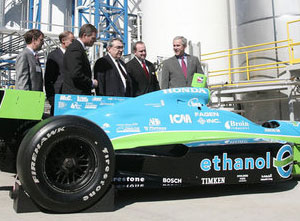 The main event was a panel discussion on cellulosic ethanol with company representatives and North Carolina political officials including Senator Richard Burr, Congressman G.K. Butterfield and Agriculture Commissioner Steve Troxler. Novozymes representatives included Steen Riisgaard, President and CEO of the Denmark-based company, and Thomas Nagy who is president of the North Carolina facility.
The main event was a panel discussion on cellulosic ethanol with company representatives and North Carolina political officials including Senator Richard Burr, Congressman G.K. Butterfield and Agriculture Commissioner Steve Troxler. Novozymes representatives included Steen Riisgaard, President and CEO of the Denmark-based company, and Thomas Nagy who is president of the North Carolina facility.
Nagy explained what they do at Novozymes. “We make enzymes. And enzymes is sort of like the key component you need to have when you convert starch or the corn to sugar that you can then make to alcohol or the ethanol,” he said. “But also, it’s got to be the key component when you want to make your switchgrass or your biomass to sugar and then to ethanol.”
 Bush noted the importance of this research to being able to produce ethanol from something other than corn.
Bush noted the importance of this research to being able to produce ethanol from something other than corn.
“The problem is we got a lot of hog growers around the United States and a lot of them here in North Carolina who are beginning to feel the pinch as a result of high corn prices,” he said. “A lot of the cattle people around the United States — I have got a few of them in my home state of Texas — they’re worried about high corn prices affecting their making a livelihood. In other words, the demand for corn, because of agricultural use, and now energy use, is causing corn prices to go up.”
For the country to reach the goal of reducing gasoline use by 20 percent within ten years, Bush says we need to develop the new technologies necessary “to make ethanol from wood chips, or stalk grass, or agricultural waste.”
The entire text of the president’s round table discussion can be found on the White House website.


 Seattle-based Imperium Renewables has announced it has secured $214 million in investments… possibly a record for biodiesel makers in the U.S. and reflecting a trend in more money going into the renewable fuel.
Seattle-based Imperium Renewables has announced it has secured $214 million in investments… possibly a record for biodiesel makers in the U.S. and reflecting a trend in more money going into the renewable fuel.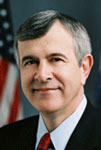 Agriculture Secretary Mike Johanns will be the keynote speaker at a symposium next month on biofuels investments.
Agriculture Secretary Mike Johanns will be the keynote speaker at a symposium next month on biofuels investments. The
The  The head of energy crop company
The head of energy crop company 
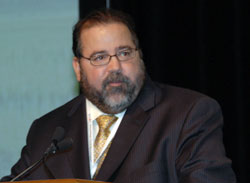 The National Ethanol Conference is now over and saying goodbye was RFA President/CEO, Bob Dinneen. Next year’s Conference will be held in Orlando, FL so be sure to plan ahead early to make sure you participate in this industry-leading event.
The National Ethanol Conference is now over and saying goodbye was RFA President/CEO, Bob Dinneen. Next year’s Conference will be held in Orlando, FL so be sure to plan ahead early to make sure you participate in this industry-leading event.
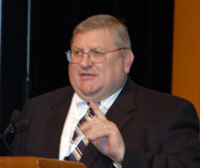 To get a complete understanding about the Ethanol Tax Incentive, attendees at the National Ethanol Conference heard this morning from Dr. John Urbanchuk, Director, LECG, LLC.
To get a complete understanding about the Ethanol Tax Incentive, attendees at the National Ethanol Conference heard this morning from Dr. John Urbanchuk, Director, LECG, LLC.
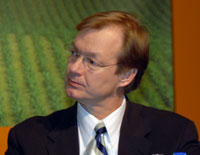 Congressman from Missouri, Kenny Hulshof, (R-MO) was on stage today at the National Ethanol Conference as part of the session on how things look on Capitol Hill for the 110th Congress.
Congressman from Missouri, Kenny Hulshof, (R-MO) was on stage today at the National Ethanol Conference as part of the session on how things look on Capitol Hill for the 110th Congress.